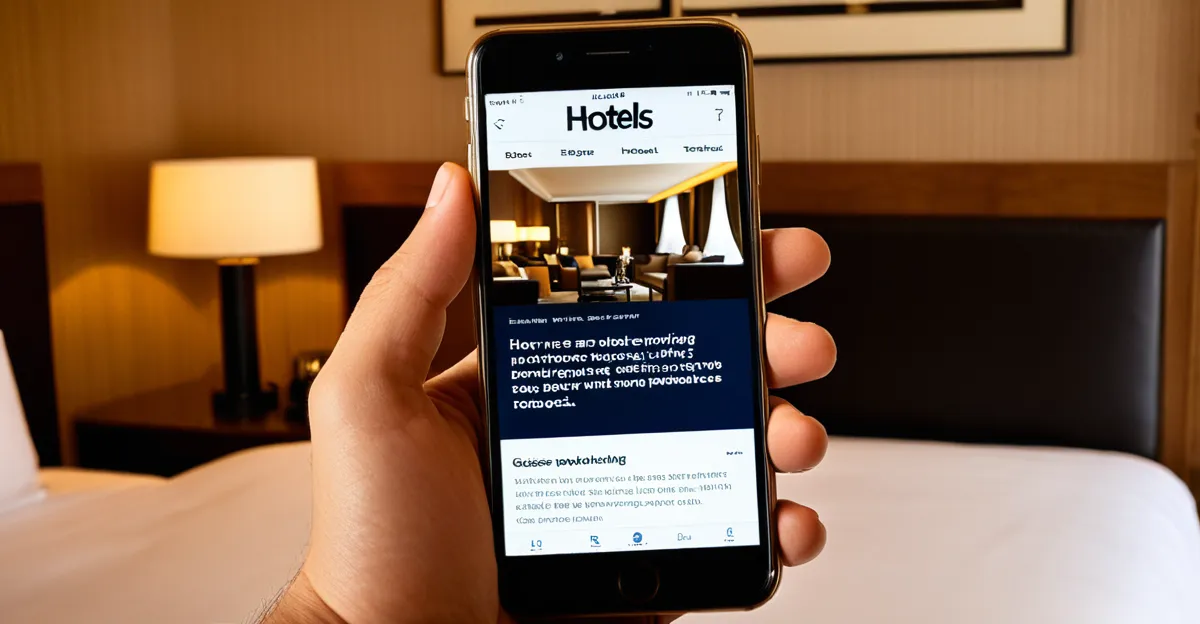Leading Technologies Redefining Guest Experience in UK Hotels
Innovations in hotel technology are transforming the way UK hotels enhance the guest experience. One notable advancement is the widespread adoption of mobile check-in and keyless entry systems. These technologies allow guests to bypass traditional front desk queues, offering a seamless and efficient arrival process that saves time and reduces physical contact.
Smart room features further elevate comfort by enabling personalised lighting, climate control, and entertainment options tailored to individual preferences. Guests can adjust these settings through intuitive apps or in-room tablets, creating a more bespoke and relaxing stay.
Also to discover : How Will Ecotourism Shape the Future of UK Travel?
In addition, contactless payments have become a standard in UK hotels innovation, promoting safety and convenience during transactions. Digital concierge services also play a crucial role by offering on-demand assistance, local recommendations, and booking capabilities via smartphone, enhancing guest autonomy and satisfaction. Hotels combining these technologies deliver a modern, frictionless experience that meets evolving traveler expectations.
Real-World Innovations: Examples from Major UK Hotels
Exploring how technology advances guest experiences
Also read : What Are the Emerging Trends Influencing UK Tourism?
Major UK hotels are embracing hotel technology examples that transform guest interactions and boost satisfaction. Premier Inn has implemented AI-powered chatbots to serve guests instantly online, answering questions about bookings, amenities, and local attractions. These chatbots improve efficiency and free up staff to provide more personalized service.
Similarly, Hilton uses AI chatbots across its properties to streamline check-in and handle routine inquiries. This technology reduces waiting times and enhances overall guest satisfaction. Marriott International takes innovation further by integrating in-room voice assistants allowing guests to control lighting, request housekeeping, or order room service hands-free, creating a seamless experience.
Boutique hotels have adopted app-based service requests enabling guests to communicate preferences quickly and provide feedback in real time. These hotel technology examples empower guests, making service more responsive and tailored.
By analyzing these case studies, it’s clear that AI and app technologies play pivotal roles in revolutionizing hotel services. For guests, this means convenience, speed, and a personalized stay — critical factors in today’s competitive hospitality landscape.
Benefits for Guests: Enhanced Comfort, Safety, and Personalisation
Guests today expect more than just a room—they seek a seamless experience that combines guest comfort, safety, and personalisation. Advances in safety technology have introduced contactless check-ins and touch-free systems, significantly reducing physical contact points. This innovation not only improves hygiene but also offers peace of mind, especially in health-conscious times.
Personalisation is another key benefit. Hotels now use data-driven insights to tailor services to individual guest preferences. For instance, loyalty apps remember room temperature choices or preferred amenities, making each stay uniquely comfortable. This approach empowers guests, providing customised experiences that feel thoughtful and exclusive.
Moreover, these technologies boost convenience and autonomy. Guests can control room settings or request services directly from their smartphones, avoiding waits or unnecessary interactions. By integrating these systems, hotels elevate comfort levels, ensuring guests feel safe, valued, and in control throughout their time on the property.
Expert Perspectives and Technology Trends for the Future
Delving into emerging innovations shaping hospitality
Hospitality technology trends are rapidly evolving, driven by expert opinions emphasizing efficiency and guest satisfaction. Leading consultants note a significant push towards Internet of Things (IoT) integration, enabling smarter environments where devices communicate seamlessly to optimize hotel operations—from energy management to personalized room settings.
Artificial intelligence (AI) is becoming indispensable; experts highlight its role in automating service requests and enhancing predictive maintenance. AI’s ability to analyze vast data sets allows hotels to anticipate guest preferences, streamline workflows, and reduce operational costs.
Looking ahead, the future of hotel experience will likely embrace immersive technologies such as augmented reality (AR) and virtual reality (VR). Industry analysts predict that AR/VR will revolutionize guest engagement by offering virtual tours, interactive concierge services, and entertainment, enhancing personalization. This trend aligns with increasing demand for unique, tech-forward experiences.
Together, these advancements signal a transformational shift. Hospitality technology trends suggest hotels will evolve into smart, responsive spaces where AI, IoT, and AR/VR converge to deliver tailored, efficient service, raising the bar for guest satisfaction and operational innovation.



